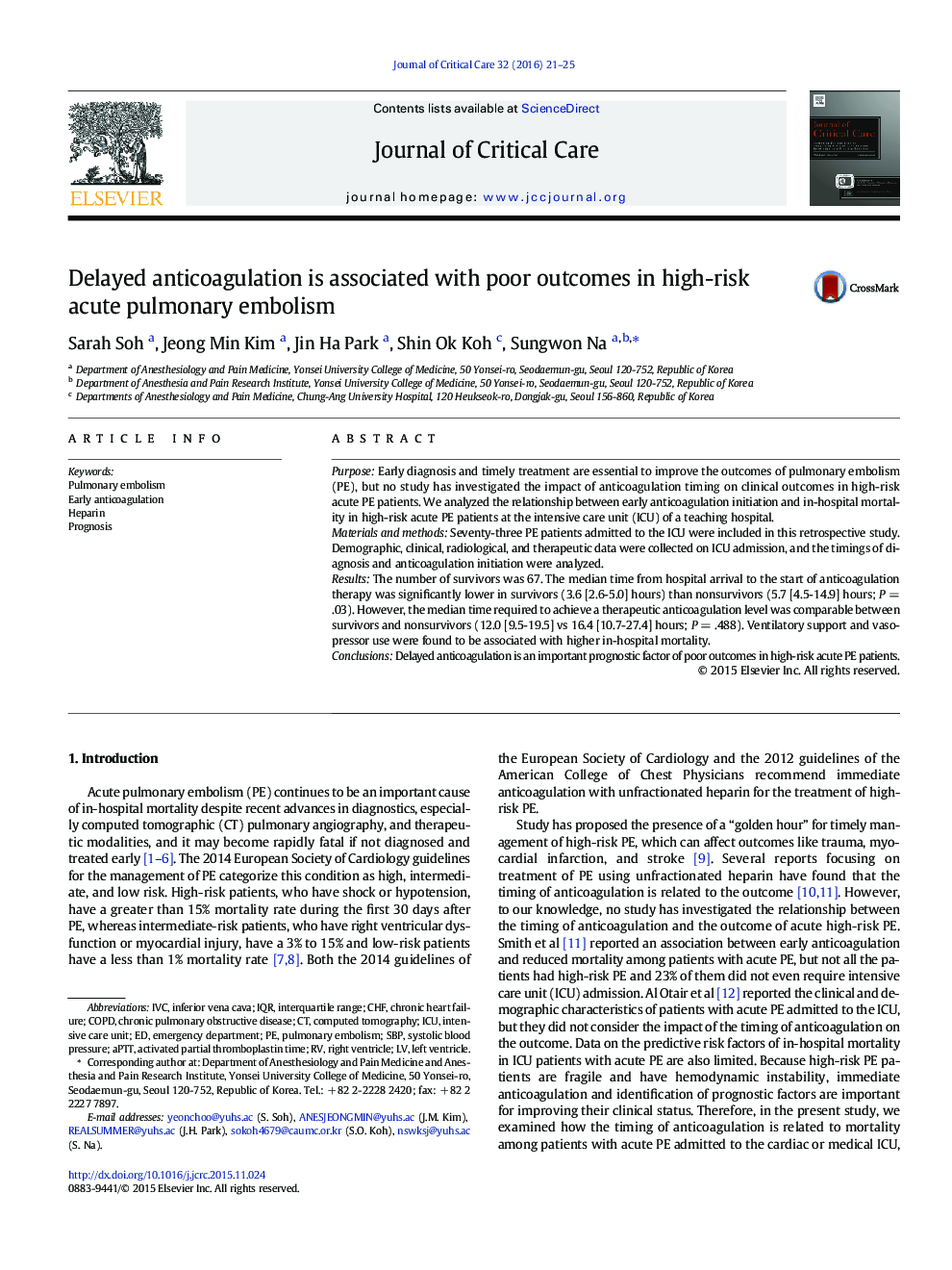| Article ID | Journal | Published Year | Pages | File Type |
|---|---|---|---|---|
| 2764468 | Journal of Critical Care | 2016 | 5 Pages |
PurposeEarly diagnosis and timely treatment are essential to improve the outcomes of pulmonary embolism (PE), but no study has investigated the impact of anticoagulation timing on clinical outcomes in high-risk acute PE patients. We analyzed the relationship between early anticoagulation initiation and in-hospital mortality in high-risk acute PE patients at the intensive care unit (ICU) of a teaching hospital.Materials and methodsSeventy-three PE patients admitted to the ICU were included in this retrospective study. Demographic, clinical, radiological, and therapeutic data were collected on ICU admission, and the timings of diagnosis and anticoagulation initiation were analyzed.ResultsThe number of survivors was 67. The median time from hospital arrival to the start of anticoagulation therapy was significantly lower in survivors (3.6 [2.6-5.0] hours) than nonsurvivors (5.7 [4.5-14.9] hours; P = .03). However, the median time required to achieve a therapeutic anticoagulation level was comparable between survivors and nonsurvivors (12.0 [9.5-19.5] vs 16.4 [10.7-27.4] hours; P = .488). Ventilatory support and vasopressor use were found to be associated with higher in-hospital mortality.ConclusionsDelayed anticoagulation is an important prognostic factor of poor outcomes in high-risk acute PE patients.
